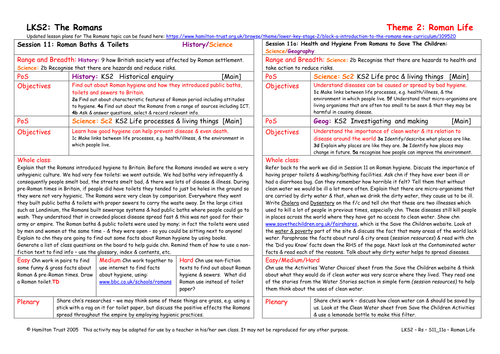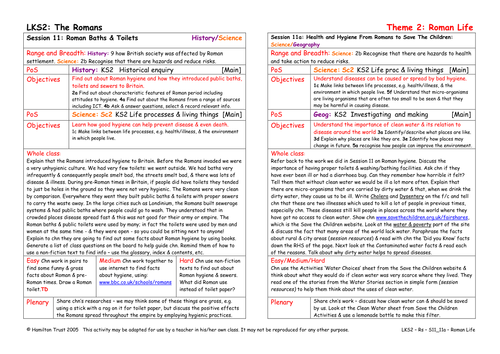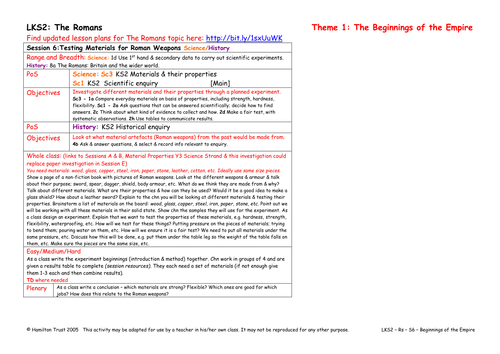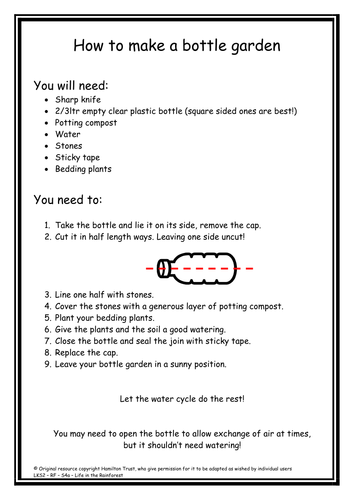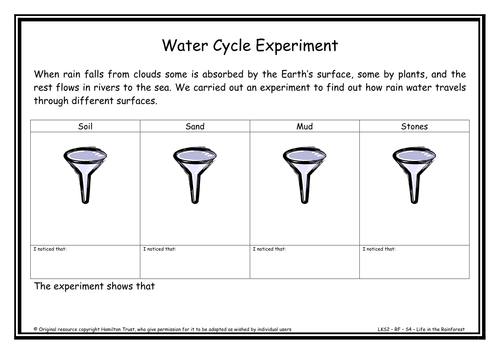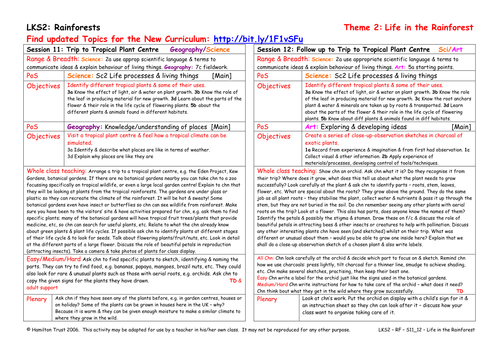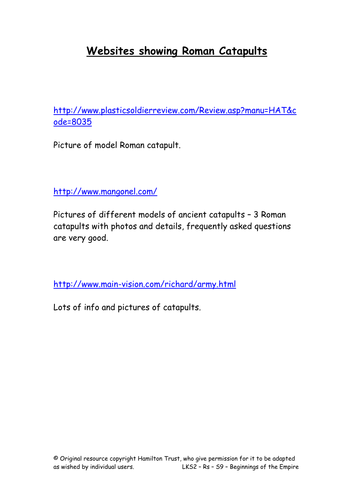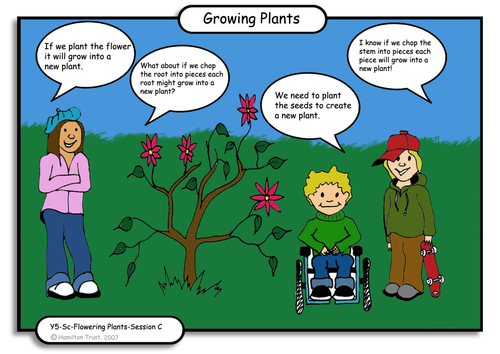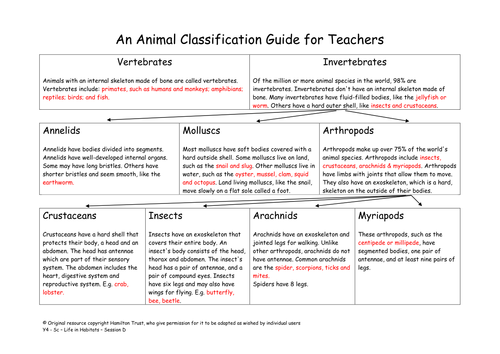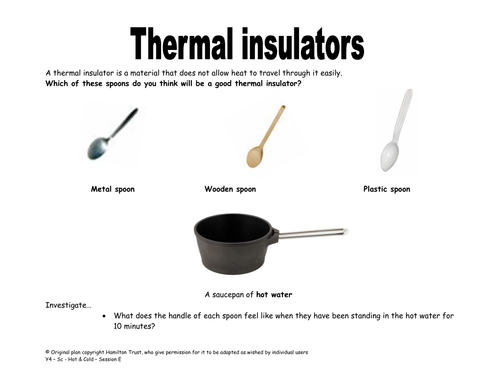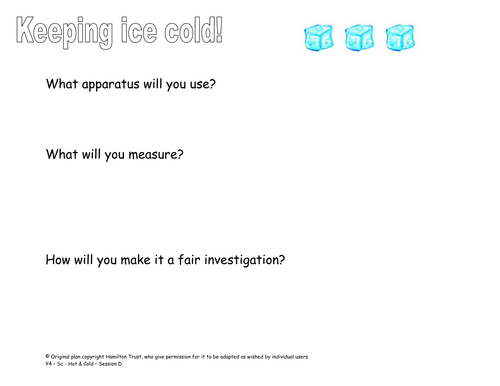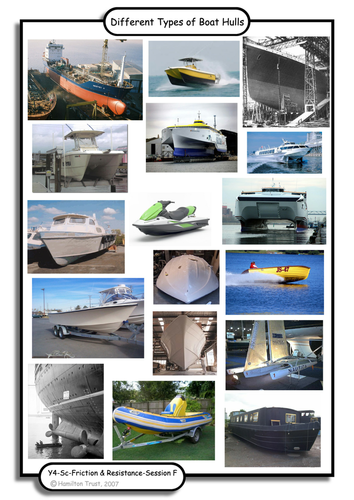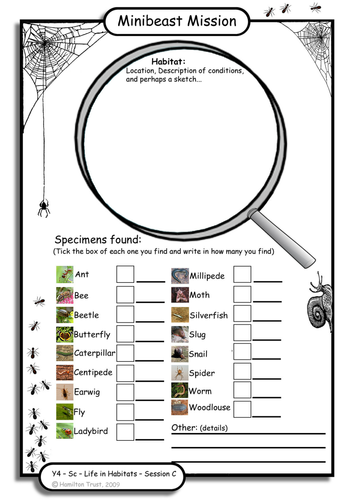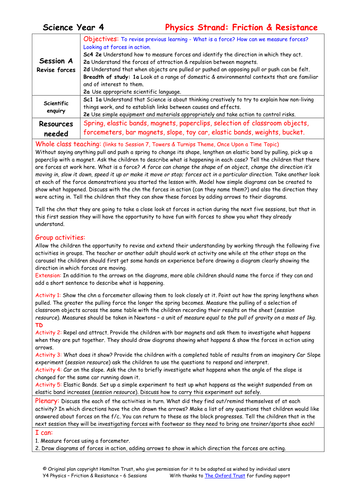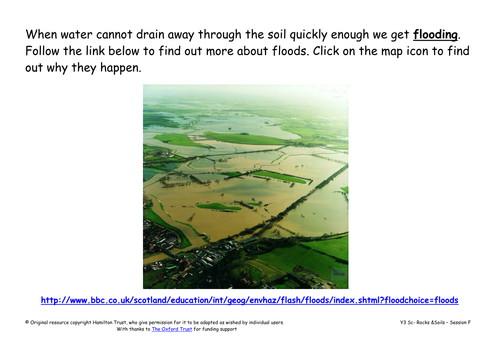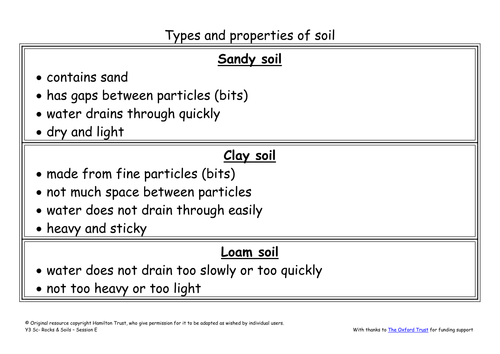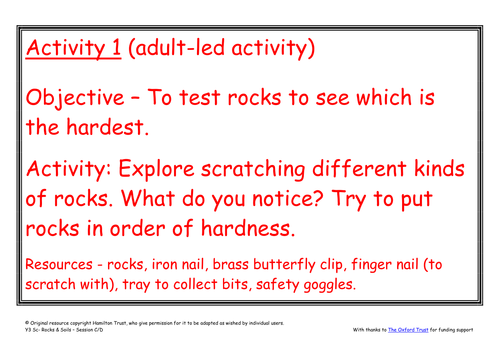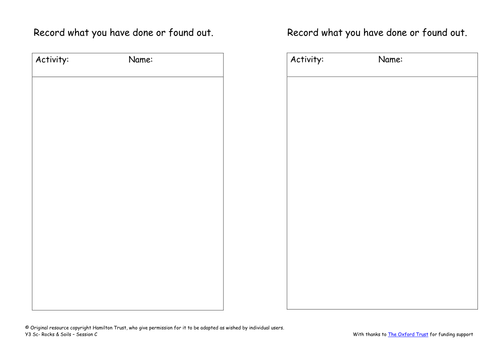
397Uploads
10041k+Views
11644k+Downloads
Elementary science

Roman Baths & Toilets
In this session children look at how the Romans improved hygiene arrangements across the empire by providing clean water and drains for sewage. Children investigate Roman toilets and baths, and discuss the positive effects of these innovations.
Suitable for years 3 and 4.

From Romans To Save The Children
Children continue work on health and hygiene in relation to clean water and the diseases caused/transmitted by dirty water. Using the Save the Children website, children discover the ways in which this issue is being tackled in different parts of the world.
Suitable for years 3 and 4.

Magnetic Attraction and Repulsion
Following session 7, children look at which types of material are attracted by magnets and which are not. Using an experimental approach, they also investigate the two magnetic poles on a magnet and what happens when like is placed against like, etc.
Suitable for years 3 and 4.

Magnetic Materials
Following the discussion about types of material in session 6, chn move on to explore magnetism. They look at which solid materials are magnetic and experiment to find out. They record their results in a systematic way.
Suitable for years 3 and 4.

Testing Materials for Roman Weapons
Children look at Roman weapons and discuss the materials that these would have been made from. They then carry out some experiments to discover which materials are most suitable for which purposes. They devise a series of fair tests and communicate results.
Suitable for years 3 and 4.

Water Cycle in Miniature
On Earth we still have the same drops of water that touched the lips of the dinosaurs! In this session children use all that they have learnt in the previous session to create a self contained bottle garden.
Suitable for years 3 and 4.

Is it sinking in! Rain into Earth
In this session children find out how the rain drops that fall from the clouds get back to the rivers and seas so that the cycle can start again. Children test a variety of natural Earth surfaces to see which allows water to flow through the fastest.
Suitable for years 3 and 4.

Trip to Tropical Plant Centre
In this session children get up close and personal with tropical plants on a visit to a botanical garden, zoo or even a large garden centre. Children find out more about conditions for growth and the life cycles of different plants.
Suitable for years 3 and 4.

Design & Make Catapults
Children look again at Roman catapults. Using a wide variety of materials, incl some mechanical components, they design & create a working model of a catapult in the Roman style. They develop their ideas, then compete to see whose catapult works best!
Suitable for years 3 and 4.

Seed dispersal
Some seeds rattle, some roll, others are just bursting out all over the place! Children discover that plants disperse many seeds in different ways, what clues do their sizes, shapes, weights and textures give us about how they spread?
Suitable for Y5 pupils.

What is it?
Children find out how plants and animals are classified into groups. They then try to identify the minibeasts found during the field trip and create a key using a branching database to enable other children to identify them.
Suitable for Year 4 pupils.

Thermal insulators & conductors
The properties of materials relate to their use as everyday objects such as spoons. Children test the insulating properties of various stirrers & discuss everyday uses of materials for thermal insulation or conduction. Look at diff meanings of word conductor. Suitable for Y4 pupils.

Keeping cool!
Children continue their investigative work by finding out which material is best for keeping ice cubes cold. What are they going to measure? An understanding of how insulators stop heat from being transferred from or to something is established.
Suitable for Year 4 pupils.

Boat investigation
In this session children investigate how the shape and surface area of a boat can affect how easily it can move through the water. Children test a variety of designs before creating bar charts to show their results. Suitable for Y4 pupils.

Field trip!
Organise a field trip in the school grounds, in the local environment or further afield. Children observe and/or collect minibeasts and record them and any evidence (including plants) to indicate why the habitat is suitable for those organisms.
Suitable for Year 4 pupils.

Revise forces
It’s forces ‘n’ fun in this session as the children get the opportunity to show what they already know. Through hands on activity they use slopes, magnets and elastic bands to revise previous learning. Forcemeters at the ready! Suitable for Y4 pupils.

Soil investigation
Look at images, and discuss the effects and causes of flooding. Do a practical investigation about the permeability of 3 different types of soils including measuring. Review what children have learnt.
Suitable for Y3 pupils.

Properties of soil
Discussing how soil is formed and why it is important to look after it. Find answers to questions on the web. Closely observe a soil sample and record what is found. Look at and draw a soil profile. Discuss erosion.
Suitable for Y3 pupils.

Explore rocks further
Take part in more practical workshop activities including separating sand and stones by sieving, using ICT to research rocks, looking up vocabulary in dictionaries, sorting and naming rocks and testing the effect of vinegar on rocks.
Suitable for Y3 pupils.

Rock investigations
Learn some key vocabulary about rocks. Take part in a workshop offering a range of activities including testing hardness of rocks, sorting rocks, finding information, drawing rocks and thinking about how pebbles and sand are formed.
Suitable for Y3 pupils.

